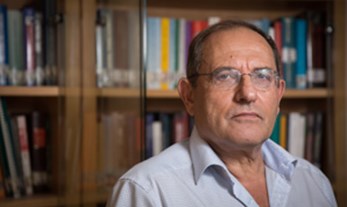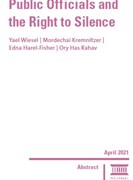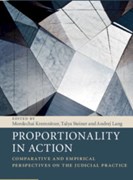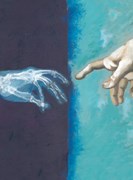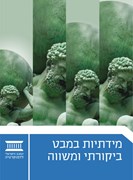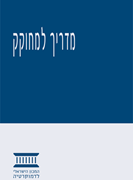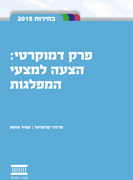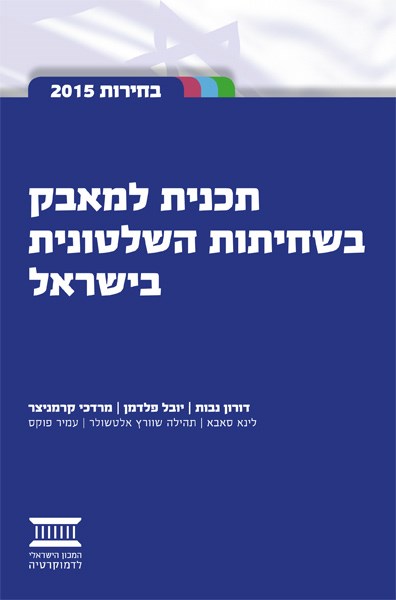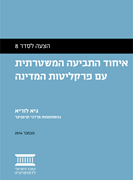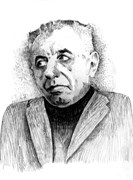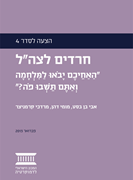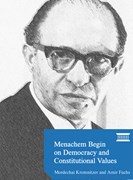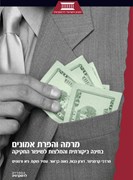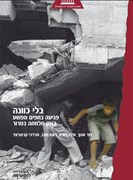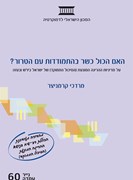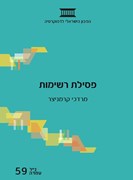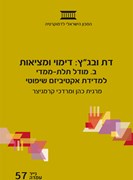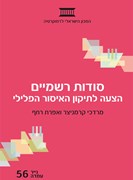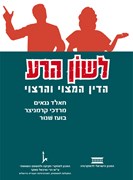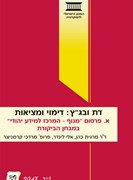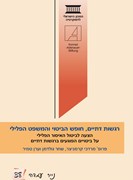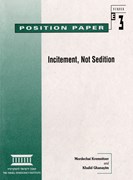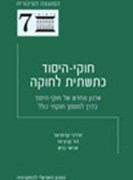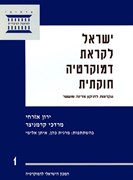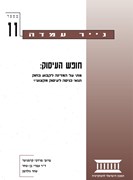Recent Publications written by Prof. Mordechai Kremnitzer
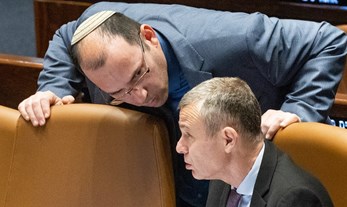
Death Penalty for Terrorists Bill is Not Constitutional and Will Deal Grievous Harm to Israel
Written By: Prof. Yuval Shany, Prof. Mordechai Kremnitzer, Prof. Amichai Cohen, Dr. Amir Fuchs
The proposed bill contravenes the basic values of the State of Israel, flouts international treaties Israel has signed and will limit its moral superiority over terrorists. The bill will expose Israel to harsh international condemnation, and it will hamper, rather than alleviate efforts in the war against terror.
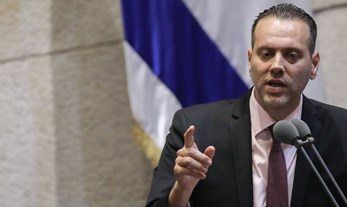
IDI Experts: MK Zohar is Exceeding His Authority as Chair by Refusing to Convene Arrangements Committee
Written By: Prof. Yuval Shany, Prof. Mordechai Kremnitzer, Dr. Amir Fuchs, Dr. Nadiv Mordechay
The decision not to convene the Arrangements Committee prevents the Knesset from conducting itself as a legislative body and performing its oversight duties

Israel Barring Entry to its Own Citizens in COVID Clampdown
Written By: Prof. Yuval Shany, Prof. Mordechai Kremnitzer, Dr. Amir Fuchs, Dr. Guy Lurie, Dr. Nadiv Mordechay
Setting sweeping restrictions on Israeli citizens’ ability to return to the country from overseas is extremely problematic from a constitutional perspective and is without parallel in the democratic world
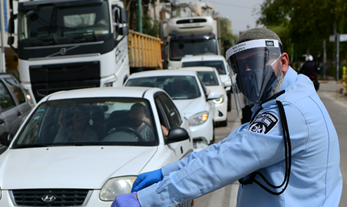
Coronavirus Bill - Professional Opinion Excerpts
Written By: Dr. Amir Fuchs, Prof. Mordechai Kremnitzer, Adv. Lila Margalit
The proposed bill, which is slated to replace the existing emergency regulations, limits Knesset oversight - the very reason this 'primary legislation' is so necessary

Proportionality and Policy Analysis: An Integrative Discussion and Its Implications
Written By: Prof. Mordechai Kremnitzer, Prof. Raanan Sulitzeanu-Kenan
In this paper, we present the first integrative discussion of policy analysis and legal proportionality in order to specify a method of meaningful integration of the proportionality requirements into policy analysis.
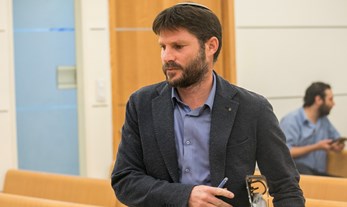
Proposed Immunity Bill – Contempt for the Rule of Law
Written By: Prof. Mordechai Kremnitzer, Dr. Amir Fuchs, Dr. Assaf Shapira
The current proposal conveys a harsh message of contempt for the rule of law and is in sharp contrast to the current trend in democratic countries
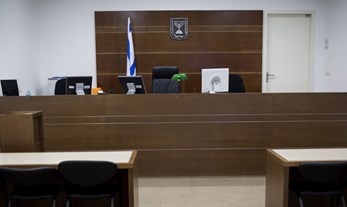
In Grand Debut, Israel's Nation-state Law Reveals Its Ugly True Colors
Written By: Prof. Mordechai Kremnitzer
The deputy president of the Jerusalem District Court inaugurated the Basic Law on Israel as the Nation-State of the Jewish People, issuing the first verdict based on it - imposing punitive damages on Hamas for the severe post-traumatic stress suffered by a Jewish Israeli wounded in a terror attack in Tel Aviv in 1998.

Why Did Israel Handcuff and Deport a French-American Law Professor?
Written By: Prof. Mordechai Kremnitzer
"How good it is that there are judges in Jerusalem, including the Magistrate’s Court, whose insight has not deserted them, despite the demands on them by the government to function as automatons in the service of brutality."
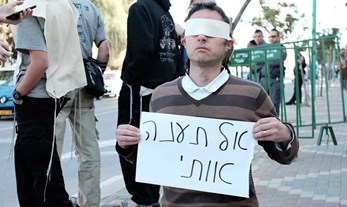
‘Special Interrogations,’ Confessions and the Duma Arson Attack
Written By: Prof. Yuval Shany, Prof. Mordechai Kremnitzer
The Lod district court decision illustrates the possible dangers to criminal defendant’s human rights though the expanding defense of necessity and the lack of separation between the preventive and criminal phases of the investigation.

The Nation State law
Written By: Yohanan Plesner , Prof. Mordechai Kremnitzer, Prof. Yedidia Z. Stern
If Israel was founded as the state of the Jewish people, why is a nation-state law so problematic, having already toppled one government?

Democracy at Risk
Written By: Prof. Mordechai Kremnitzer
Citizens must lead the way in the battle against political corruption.
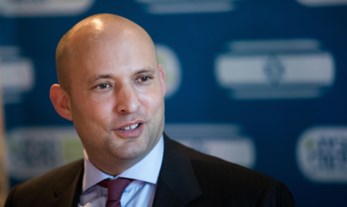
A History Lesson
Written By: Prof. Mordechai Kremnitzer, Admiral (Res.) Amichay (Ami) Ayalon
Experience and history repeatedly teach us that what was once widely accepted as an irrefutable truth can be revealed to be a total falsehood.
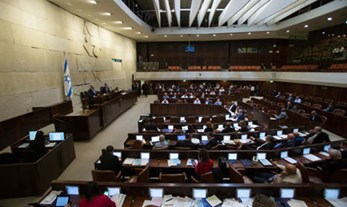
Standing Up for Democracy
Written By: Prof. Mordechai Kremnitzer
One of the most fundamental principles of democratic government is the delicate system of checks and balances that prevents the arbitrary exercise of power by the majority. Israel, the sole democracy in a dangerous and unstable neighborhood, has long been an exemplar of these checks and balances. We cannot allow Israel's democratic foundations to gradually erode. Israel’s survival and prosperity hinge, in the final analysis, on its democratic vitality.

Responsibility to Protect – a Right of Self-Defense for All States against Atrocities
Written By: Prof. Mordechai Kremnitzer
This essay makes a case for the international community’s right of self-defense against atrocities, through its members, and to refer briefly to the challenge of implementing such a right.
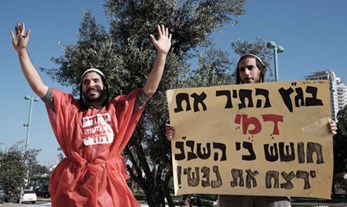
Torture Laws Must Apply To Arab And Jew Alike
Written By: Prof. Mordechai Kremnitzer
Dr. Mordechai Kremnitzer argues that it is time for Israel to examine the Shin Bet security service's regulations, based on the assumption that they apply to all residents of Israel. One law must apply to all suspected perpetrators of terrorist acts — Jews and Arabs alike.
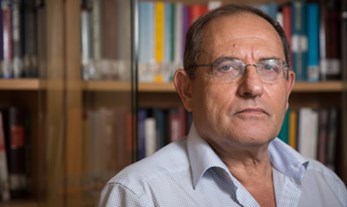
Thou shalt not kill?
Written By: Prof. Mordechai Kremnitzer
A society that is doomed to live forever by the sword cannot hope to be truly humanist and democratic. Originally published in the Jerusalem Report.

The Meaning and Significance of the Rabin Assassination
Written By: Prof. Mordechai Kremnitzer
Twenty years have passed since Yigal Amir murdered Prime Minister Yitzhak Rabin. Both for political reasons and for the sake of national unity, Israeli society has avoided a fundamental and straightforward examination of the background, meaning, and implications of this event. But unity cannot be based on whitewash or false symmetry between left and right. The following is an invitation to conduct the kind of inquiry that is necessary.

Criteria for Evaluating the Success of the Israeli Attorney General
Written By: Dr. Guy Lurie, Prof. Mordechai Kremnitzer
In an article in The Marker, Prof. Mordechai Kremnitzer and Dr. Guy Lurie recommend ways of ensuring that the performance of the Israeli Attorney General is evaluated on a regular and systematic basis.
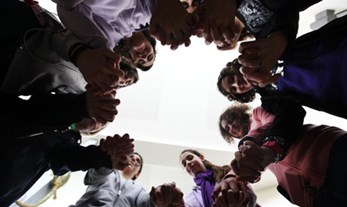
Education for Democratic Values and Combating Racism through Education
Written By: Prof. Mordechai Kremnitzer, Noam Lautman
IDI Vice President Prof. Mordechai Kremnitzer and Noam Lautman, Chairman of the Lautman Fund, recommend ways in which the Israeli educational system can strengthen democratic values, and warn that students should not be forced to choose between two competing alternatives—Israel as a nation-state or as a "state of all its citizens."

Democracy: The Key Election Issue
Written By: Prof. Mordechai Kremnitzer
In an op-ed in Maariv, IDI Vice President Prof. Mordechai Kremnitzer calls for an election campaign that focuses not only on foreign policy and Israel's social gap, but on the nature of Israeli identity and the value of Israeli democracy itself.

Legal Opinion on the Israel Hayom Law
Written By: Prof. Mordechai Kremnitzer, Dr. Tehilla Shwartz Altshuler
A summary of a legal opinion opposing the "Law for the Advancement and Protection of Print Journalism in Israel," which would prohibit the distribution of a full-sized daily newspaper in Israel free of charge.

Confronting the Rabin Assassination
Written By: Prof. Mordechai Kremnitzer
Nineteen years after the murder of Prime Minister Yitzhak Rabin, IDI Vice President Prof. Mordechai Kremnitzer explores the background, meaning, and ramifications of this event, taking a hard look at some of the dangers he sees in Israeli society today.

Legal Opinion on the "Zoabi Bill"
Written By: Prof. Mordechai Kremnitzer, Dr. Amir Fuchs
A summary of a legal opinion on a proposed amendment to Basic Law: The Knesset that was submitted by Prof. Mordechai Kremnitzer and Dr. Amir Fuchs to the Ministerial Committee on Legislative Affairs.
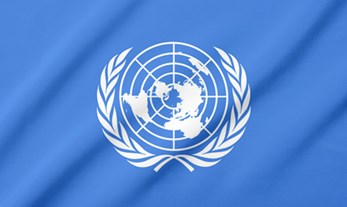
A Betrayal of International Law
Written By: Prof. Mordechai Kremnitzer
In a Jerusalem Post op-ed, Prof. Mordechai Kremnitzer argues that by breaching their responsibility to be impartial, the UN Human Rights Council and its commission for investigating alleged war crimes in Gaza are betraying international law, even if unintentionally.

The IDF: Army of the People or Army of God?
Written By: Prof. Mordechai Kremnitzer
IDI Vice President Prof. Mordechai Kremnitzer addresses the question of the appropriateness of the letter that Givati Brigade commander Col.Ofer Winter sent to his subordinate officers as Israel prepared for the ground incursion in Gaza in the summer of 2014.
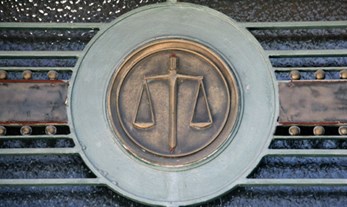
Mourning for Gazan Children Isn't Left-Wing
Written By: Prof. Mordechai Kremnitzer
IDI Vice President Prof. Mordechai Kremnitzer discusses the High Court of Justice's decision to uphold the Israel Broadcasting Authority's rejection of an infomercial in which the names of Gazan children who were killed in Operation Protective Edge would have been read aloud.
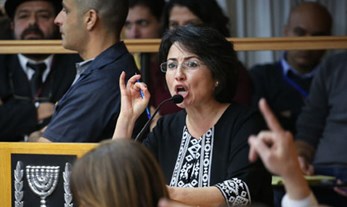
Heart vs. Head: The Case of Hanin Zoabi
Written By: Prof. Mordechai Kremnitzer, Admiral (Res.) Amichay (Ami) Ayalon
Prof. Mordechai Kremnitzer and Admiral Ami Ayalon argue that while the heart has difficulty defending MK Hanin Zoabi's freedom of expression, the head demands that we object to the decision to remove her from parliamentary activity for six months.

Operation Protective Edge and International Law
Written By: Yohanan Plesner , Prof. Mordechai Kremnitzer, Prof. Amichai Cohen, Adv. Eli Bahar
As Operation Protective Edge enters its second week, IDI experts outline the legal basic concepts involved in asymmetrical warfare and the boundaries of permissible action according to standard interpretations of existing international law.

Censorship, Gag Orders, Military Censor, Media
Written By: Prof. Mordechai Kremnitzer, Dr. Amir Fuchs
Prof. Mordechai Kremnitzer and Attorney Amir Fuchs assert that the only way to guarantee Israel's existence as a Jewish and democratic state is not through a Basic Law that defining Israel as the nation state of the Jewish people but through a Constitution.

Basic Law: Nation State? Only a Constitution Can Guarantee Israel's National Character
Written By: Dr. Amir Fuchs, Prof. Mordechai Kremnitzer
Prof. Mordechai Kremnitzer and Attorney Amir Fuchs assert that the only way to guarantee Israel's existence as a Jewish and democratic state is not through a Basic Law that defining Israel as the nation state of the Jewish people but through a Constitution.

IDI Experts Submit Legal Opinion on Basic Law: Israel as the Nation State of the Jewish People
Written By: Prof. Mordechai Kremnitzer, Dr. Amir Fuchs
A legal opinion opposing the proposed Basic Law: Israel as the Nation State of the Jewish People, which was submitted by IDI Vice President Prof. Mordechai Kremnitzer and Attorney Amir Fuchs to the Ministerial Committee on Legislation on June 4, 2014.

IDI Experts Submit Legal Opinion on Basic Law: Israel as the Nation State of the Jewish People
Written By: Prof. Mordechai Kremnitzer, Dr. Amir Fuchs
On June 4, 2014, IDI experts Prof. Mordechai Kremnitzer and Attorney Amir Fuchs submitted a legal opinion to the Ministerial Committee on Legislation stating their concerns about the proposed Basic Law: Israel as the Nation State of the Jewish People. A full translation of this legal opinion can be found below.

My Jerusalem: Thoughts for Jerusalem Day
Written By: Prof. Mordechai Kremnitzer
IDI Vice President Prof. Mordechai Kremnitzer shares thoughts on Jerusalem, which symbolizes what is most beautiful and exalted in Jewish culture: the commitment to law and morality, to justice and mercy.
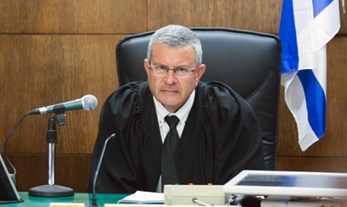
The Holyland Sentencing and the Fight against Government Corruption
Written By: Prof. Mordechai Kremnitzer
In an op-ed in <em>Haaretz</em> published after Ehud Olmert was sentenced to six years in prison, Prof. Mordechai Kremnitzer explores the implications of the Holyland case for the battle against corruption in Israel.

Basic Law: Israel as the Nation State of the Jewish People – A Danger to the Zionist Enterprise
Written By: Dr. Amir Fuchs, Prof. Mordechai Kremnitzer
In an article in the Hebrew weekly <em>Makor Rishon</em>, Prof. Mordechai Kremnitzer and Attorney Amir Fuchs argue against the current initiative to pass Basic Law: Israel as the Nation State of the Jewish People, which they see as divisive and problematic.

The Struggle against Government Corruption
Written By: Prof. Mordechai Kremnitzer
In an op-ed in <em>Haaretz</em>, Prof. Mordechai Kremnitzer discusses government corruption in Israel and the implications of the Holyland verdict for deterring such corruption in the future.

Building a Shared Society: On the Priorities of the Israel Police
Written By: Prof. Mordechai Kremnitzer
Prof. Mordechai Kremnitzer explains the importance of the fifth meeting of IDI's Police and Society Forum, which was dedicated to the question of partnership and transparency in the relationship between the Israel Police and Arab society.
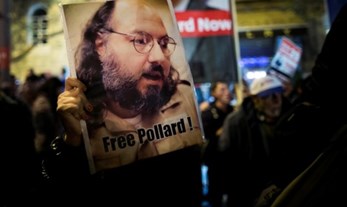
The Case of Jonathan Pollard: A Legal Analysis
Written By: Prof. Mordechai Kremnitzer
In an op-ed in The Jerusalem Post, IDI Vice President Prof. Mordechai Kremnitzer analyzes Jonathan Pollard's life sentence and calls on President Obama to put an end to Pollard's incarceration In the name of the shared commitment to justice.

Does Israel Need a Police Prosecution Department?
Written By: Prof. Mordechai Kremnitzer, Dr. Guy Lurie
In an op-ed in <em>Haaretz</em>, IDI Vice President Prof. Mordechai Kremnitzer and Dr. Guy Lurie call for reform that will abolish the Police Prosecution Department, leaving the Police to investigate and the Public Prosecution to bring criminal charges.
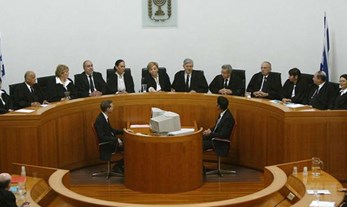
A Truly Supreme Court
Written By: Prof. Mordechai Kremnitzer, Dr. Guy Lurie
In an op-ed in TheMarker, IDI Vice President Prof. Mordechai Kremnitzer and Dr. Guy Lurie discuss the benefits of establishing a new appellate court between the district courts and the Supreme Court.

Prof. Mordechai Kremnitzer Speaks Out on Using Administrative Detention in Cases of Organized Crime
Written By: Prof. Mordechai Kremnitzer
IDI Vice President of Research Prof. Mordechai Kremnitzer responds to the possibility that the police will use administrative detention to combat organized crime, much in the manner as it is used to combat terrorism.

Separating the Prosecution from the Police
Written By: Prof. Mordechai Kremnitzer, Dr. Guy Lurie
Most criminal cases in Israel are prosecuted by the Israel Police rather than by the State Prosecutor. Prof. Mordechai Kremnitzer and Dr. Guy Lurie call for a division that would make the Police responsible for investigations and the State Prosecutor responsible for indictments and trials.

The Contributors to the State Bill: Contributing to the Jewish-Arab Divide
Written By: Dr. Talya Steiner, Prof. Mordechai Kremnitzer
Prof. Mordechai Kremnitzer and Att. Talya Steiner warn that the veteran's benefit bill, which is intended to extend benefits to those who have contributed to the State, discriminates against Israel's Arab citizens, who are exempt from military service in Israel.

Who Represents Equality – The Attorney General or the Equality of Opportunity Commission?
Written By: Prof. Mordechai Kremnitzer, Dr. Talya Steiner
Should the State always present its position in a unified voice or should state institutions with specific expertise sometimes be allowed to present their views separately? Prof. Mordechai Kremnitzer and Attorney Talya Steiner address this question In an op-ed in Haaretz.

The Veterans Benefits Bill: Legal License to Discriminate
Written By: Prof. Mordechai Kremnitzer, Dr. Talya Steiner
Prof. Mordechai Kremnitzer and Attorney Talya Steiner warn that the proposed veterans benefits bill, which would give preferential treatment in employment, higher education, and housing to those who have served in the Israeli army, gives license to discriminate against Israel's Arab minority.

The ‘Jenin-Jenin Law’: A Blessing or a Curse?
Written By: Prof. Mordechai Kremnitzer, Dr. Amir Fuchs
In an op-ed in Maariv, IDI Vice President Mordechai Kremnitzer and Attorney Amir Fuchs warn that the proposed amendment to Israel's Anti-Defamation Law known as the 'Jenin-Jenin Law' will have the opposite of its intended effect.

The ‘Jenin-Jenin Law’: A Blessing or a Curse?
Written By: Prof. Mordechai Kremnitzer, Dr. Amir Fuchs
In an op-ed in <em>Maariv</em>, IDI Vice President Mordechai Kremnitzer and Attorney Amir Fuchs warn that the proposed amendment to Israel's Anti-Defamation Law, which would allow IDF soldiers to bring a class action suit for libel when the operational activities in which they participated are criticized in the media, will have the opposite of its intended effect.

Basic Law: Israel as the Nationalist State of the Jewish People
Written By: Dr. Amir Fuchs, Prof. Mordechai Kremnitzer
In an op-ed originally published in Maariv, Prof. Mordechai Kremnitzer and Attorney Amir Fuchs warn that the Basic Law: Israel as the Nation State of the Jewish People would undercut the balance between the "Jewish" and "democratic" nature of the State of Israel.
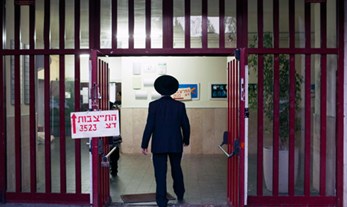
The Proposals for Drafting the Ultra-Orthodox in Israel: The Issues at Hand
Written By: Prof. Mordechai Kremnitzer
IDI's Prof. Mordechai Kremnitzer critiques various aspects of the proposals for integrating the ultra-Orthodox into the army and calls on the Israeli public to stand firm on its demand for an arrangement that is fair and equitable.
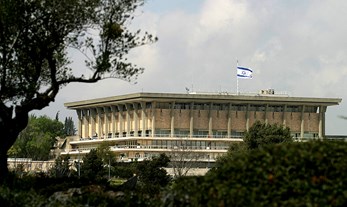
Are Convicts Fit for Political Office?
Written By: Doron Navot, Prof. Mordechai Kremnitzer
IDI Vice President Mordechai Kremnitzer and Doron Navot, author of Political Corruption in Israel, discuss whether politicians convicted of crimes involving moral turpitude should be allowed to return to the Knesset.

What About Democracy?
Written By: Prof. Mordechai Kremnitzer, Dr. Amir Fuchs
In an op-ed published in Haaretz, IDI Vice President Mordechai Kremnitzer and researcher Attorney Amir Fuchs point out that despite the assault on democratic values witnessed in the outgoing Knesset, "democracy" does not seem to be on the agenda in the current election campaign.

License to Discriminate: A Jewish and Undemocratic State
Written By: Prof. Mordechai Kremnitzer, Shiri Krebs
A bill entitled "Basic Law: Israel – The Nation State of the Jewish People" is currently being considered by the Knesset. Although it was sponsored by a large number of Knesset members from a both the coalition and the opposition, the bill is controversial as it may disrupt the delicate balance between the "Jewish" and "democratic" identities of the State of Israel. In this op-ed, IDI Vice-President Prof. Mordechai Kremnitzer and Researcher Adv. Shiri Krebs argue that the bill is unnecessary and counterproductive to the goal of a Jewish and democratic Israel.

Prof. Mordechai Kremnitzer on the Ehud Olmert Verdict
Written By: Prof. Mordechai Kremnitzer
In this video interview, IDI Vice President of Research Prof. Mordechai Kremnitzer responds to verdict in the trial of Former Prime Minister Ehud Olmert.

Half-Measures in the War on Terror: An Israeli Perspective
Written By: Prof. Mordechai Kremnitzer, Prof. Yuval Shany
In an op-ed in The Jerusalem Post, Prof. Mordechai Kremnitzer and Prof. Yuval Shany discuss the need for measures, laws, and institutions designed to combat the war on terror in order to strike a balance between concern for national security and the need to safeguard democratic values such as human rights and the rule of law.

The Tal Law: Judicial Responsibility at its Best
Written By: Prof. Mordechai Kremnitzer
Prof. Mordechai Kremnitzer presents a contrasting view to Prof. Yedidia Stern's assertion that the Israeli Supreme Court's ruling on the exemption of ultra-Orthodox men from military service in Israel is "<a href="http://en.idi.org.il/analysis/articles/judicial-activism-at-its-height">Judicial Activism at its Height</a>."

Basic Law: Legislation – A Lethal Blow to the Supreme Court
Written By: Prof. Mordechai Kremnitzer, Dr. Amir Fuchs
IDI Vice President Prof. Mordechai Kremnitzer and Adv. Amir Fuchs analyze the proposed legislation that would allow the Knesset to reinstate laws that have been struck down by the Israeli High Court and warn of a threat to judicial review and civil liberties.

A Preemptive Strike on Iran: Who has the Authority to Decide?
Written By: Eyal Tsur, Prof. Mordechai Kremnitzer
As the world considers the threat of a nuclear Iran, Israeli public discourse has focused primarily on whether or not Israel should launch a preemptive strike on Iran's nuclear facilities. But who has the authority to decide whether a military operation should be conducted? In this article, IDI Vice President Prof. Mordechai Kremnitzer and researcher Eyal Tsur explore the strengths and weaknesses of the current division of responsibility regarding this matter, and recommend ways of improving the system.

Menachem Begin on Democracy and Constitutional Values
Written By: Prof. Mordechai Kremnitzer, Dr. Amir Fuchs
Although some in Israel hold nationalism and liberalism to be mutually exclusive, former Israeli Prime Minister Menachem Begin was both a proud nationalist and an unwavering guardian of liberal principles. As the Jewish world commemorates the 20th anniversary of Begin's death, IDI is pleased to present "Menachem Begin on Democracy and Constitutional Values," a booklet by IDI Vice President Prof. Mordechai Kremnitzer and Attorney Amir Fuchs, which was originally published in Hebrew on the eve of Yom Kippur, 2011.

Restraining Orders Should Alarm Settlers
Written By: Adv. Lina Saba-Habesch, Prof. Mordechai Kremnitzer
In an op-ed originally published in The Jerusalem Post on January 11, 2012, IDI Vice President Prof. Mordechai Kremnitzer and Attorney Lina Saba discuss the administrative restraining orders recently issued against 12 Jewish activists involved in "price tag" activity in Judea and Samaria. What is the legal basis for using these measures and what are the implications of their use?

Neeman's "Jewish Poker" Game
Written By: Dr. Amir Fuchs, Prof. Mordechai Kremnitzer
Prof. Mordechai Kremnitzer and Attorney Amir Fuchs explain why they see the "Bar Association Bill" as undermining the rule of law. This bill would change the way that the Bar Association's representatives to the Judicial Appointments Committee are selected, and would apply retroactively.

Nows the Time for a Constitution
Written By: Prof. Mordechai Kremnitzer, Dr. Amir Fuchs
History teaches that adopting a constitution is usually possible only at the point at which a state is first established; if that opportunity is missed, it is only at a time of real crisis that it is politically feasible to set new rules of the game. In an op-ed in <em>Haaretz</em>, IDI Vice President of Research Prof. Mordechai Kremnitzer and Attorney Amir Fuchs assert that such a moment has come.

On the Way to Venezuela
Written By: Prof. Mordechai Kremnitzer
In an op-ed in <em>Haaretz</em>, IDI Vice President of Research Prof. Mordechai Kremnitzer and Attorney Shiri Krebs respond to a proposed amendment to the Associations Law that would prevent non-profit organizations from receiving contributions from "governments and international bodies like the United Nations and European Union."

Say No to the Boycott Bill
Written By: Prof. Mordechai Kremnitzer
In an op-ed in Maariv, IDI Vice President of Research Prof. Mordechai Kremnitzer and IDI Researcher Attorney Amir Fuchs explain why the "Bill to Prevent Harm to the State of Israel Through Boycotts” poses a serious threat to freedom of expression in Israel.
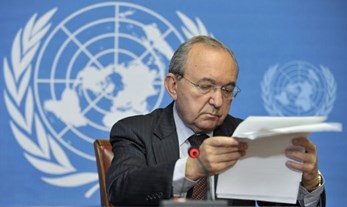
A Suggested Moral Analysis of the Goldstone Report and its Aftermath
Written By: Prof. Mordechai Kremnitzer
Prof. Mordechai Kremnitzer, IDI Vice President of Research, analyzes fundamental principles that bear crucially on the moral aspects of the Goldstone Report, Israel's stance with respect to the report, and contemporary international criminal law in general.

The Nakba Bill: A Test of the Democratic Nature of the Jewish and Democratic State
Written By: Prof. Mordechai Kremnitzer, Dr. Amir Fuchs
The “Nakba Bill” would impose financial sanctions on institutions that commemorate Israel’s Independence Day as a day of mourning. In this op-ed from the Ynet website, IDI’s Prof. Mordechai Kremnitzer and Adv. Amir Fuchs warned that while observing Israel’s Independence Day as a day of mourning by citizens of the State of Israel is “a galling, unpleasant, and defiant act,” the test of a true democracy is whether it is able to allow such expressions of freedom of speech.

Time to Step Up for Democracy
Written By: Dr. Arye Carmon, Prof. Yedidia Z. Stern, Prof. Mordechai Kremnitzer
A number of controversial bills recently tabled in the Knesset undermine basic constitutional values, add fuel to the international assault on Israel's legitimacy, and may end up damaging Israel's democratic character. In an article in The Jerusalem Post, IDI Former President and Founder Dr. Arye Carmon and Vice Presidents Professors Mordechai Kremnitzer and Yedidia Z. Stern respond to these initiatives.

Israeli McCarthyism?
Written By: Prof. Mordechai Kremnitzer, Shiri Krebs
In this op-ed article, IDI Vice President of Research Prof. Mordechai Kremnitzer and IDI researcher Adv. Shiri Krebs question the wisdom of forming a parliamentary commission of inquiry into the funding of Israeli human rights organizations. They warn against a slippery slope to McCarthyism and point out that the establishment of the commission, far from strengthening Israel’s legitimacy, will accelerate efforts to delegitimize Israel and prosecute Israeli officials overseas.

Mr. Prime Minister, Douse the Flames of Racism
Written By: Prof. Mordechai Kremnitzer, Dr. Amir Fuchs
In an op-ed from <em>Haaretz</em>, IDI Vice President of Research Prof. Mordechai Kremnitzer and Researcher Adv. Amir Fuchs assert that Prime Minister Netanyahu was right to condemn a letter by rabbis forbidding the rental of property in Israel to Arabs, and call on him to prevent the passage of a bill that would allow small Jewish communities to exclude Arabs from living in their midst.

Video Interview: Prof. Mordechai Kremnizter on the Acceptance Committee Bill
Written By: Prof. Mordechai Kremnitzer
Recently, the Knesset has considered a bill that would allow small Israeli communities the right to reject candidates according to “suitability to the community’s fundamental outlook.” In effect, the bill would enable communities to reject individuals based on ethnicity, gender, religion, and socioeconomic status. In the following interview, IDI Vice President of Research Prof. Mordechai Kremnitzer speaks out about the bill. Prof. Kremnitzer discusses the legislation’s intent, along with its inherent dangers. He also explains the Supreme Court’s possible role in rejecting such a bill, and whether judicial intervention is a reasonable solution to legislation that infringes upon basic rights. Watch the interview below or on the IDI Youtube channel.

Israel's Legislation Could Eventually Serve its Enemies
Written By: Prof. Mordechai Kremnitzer
IDI Vice President of Research Prof. Mordechai Kremnitzer was one of the most vocal opponents of a Knesset bill that would enable neighborhood committees to disqualify prospective residents on the basis of “lack of suitability for the community’s social-cultural fabric.” Find out more about his position in this op-ed and video interview.

The Loyalty Oath: Where Is Our Common Sense?
Written By: Prof. Mordechai Kremnitzer
In the following op-ed from Haaretz, IDI Vice President Prof. Mordechai Kremnitzer questions the wisdom of the amendment to the Israeli Citizenship Act that requires naturalized Israeli citizens to take an oath of loyalty to the State of Israel "as a Jewish and democratic state," arguing that this requirement is discriminatory and ultimately undermines the Jewish character of the State.

The Counter-Terrorism Memorandum Bill
Written By: Prof. Mordechai Kremnitzer, Prof. Yuval Shany, Terror and Democracy Research Team
An analysis of the proposed comprehensive counter-terrorism bill that was prepared by IDI's Terrorism and Democracy research team and submitted to the Ministry of Justice.

Protest and Punishment
Written By: Prof. Mordechai Kremnitzer
If Israeli performing artists consider the establishment of settlements in Judea and Samaria to be immoral, is it wrong for them to refuse to perform there? In an op-ed in Haaretz, IDI Vice President of research Prof. Mordechai Kremnitzer defends such boycotts as an exercise of the right to free speech and protest.

We Need a Constitution
Written By: Prof. Mordechai Kremnitzer
In an op-ed published in Haaretz on June 23, 2010, IDI Vice President Prof. Mordechai Kremnitzer reaffirms the need for a constitution for Israel, responds to criticism of IDI's draft constitution, and challenges others to come up with their own constitution proposals.

Decade in Review: Human Rights in Israel
Written By: Prof. Mordechai Kremnitzer
IDI Vice President Professor Mordechai Kremnitzer weighs in on the challenges faced by Israel's High Court of Justice, in an article that was published at the end of the third millennium as part of a collaboration between IDI and Walla!, a popular Israeli website.

Implications of the 'Nakba Law' on Israeli Democracy
Written By: Roy Konfino, Prof. Mordechai Kremnitzer
Prof. Mordechai Kremnitzer and Roy Konfino argue that the proposed 'Nakba Law,' which forbids public mourning of Israel's Independence Day, is anti-democratic, unconstitutional, and detrimental to freedom of expression and of peaceful demonstration in Israel.

Disqualifying the Arab Lists
Written By: Prof. Mordechai Kremnitzer
The Arab parties of Balad and Raam-Taal were banned last week from participating in the upcoming elections for the Knesset in February. This ruling by the Central Elections Committee is a clear indication of the dire state of Israeli politics and the ongoing deterioration of Israel's democratic character.

Summing Up the Knesset's Summer Session
Written By: Prof. Mordechai Kremnitzer
Prof. Mordechai Kremnitzer reflects on the productivity of the Knesset during the summer of 2008, suggesting that most of its members' energy was invested in dangerous, anti-democratic, disproportionate, offensive, and sometimes almost racist, legislation.

Minister of Justice Friedman vs. The Judicial System
Written By: Prof. Mordechai Kremnitzer, Yael Cohen
Last week, the Justice Minister proposed a bill aimed at separating the duties of the Attorney General from those of the Public Prosecutor. Prof. Mordechai Kremnitzer writes that Friedman's several attempts to introduce changes to the judicial system should be seen for what they are: a part of his larger agenda of weakening the judicial system.

Palestinian Damage Claims
Written By: Prof. Mordechai Kremnitzer, Roy Konfino
Prof. Mordechai Kremnitzer and Roy Konfino respond to a bill that in practice exempts the State of Israel from compensating Palestinians who live in the occupied territories for any damages the State may have caused them as part of the war on terror.
Videos written by Prof. Mordechai Kremnitzer
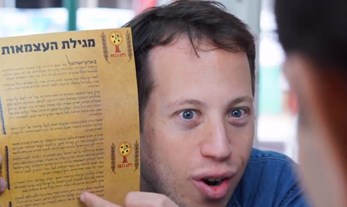
You can’t prepare a Nation State law the way you make a pizza!
Written By: Yohanan Plesner , Prof. Yuval Shany, Prof. Yedidia Z. Stern, Prof. Mordechai Kremnitzer
The nation state law is the "identity law" of the state, and this will have a revolutionary significance, since democracy is not mentioned in it.


